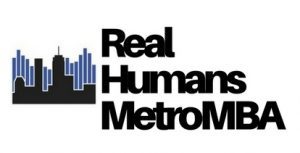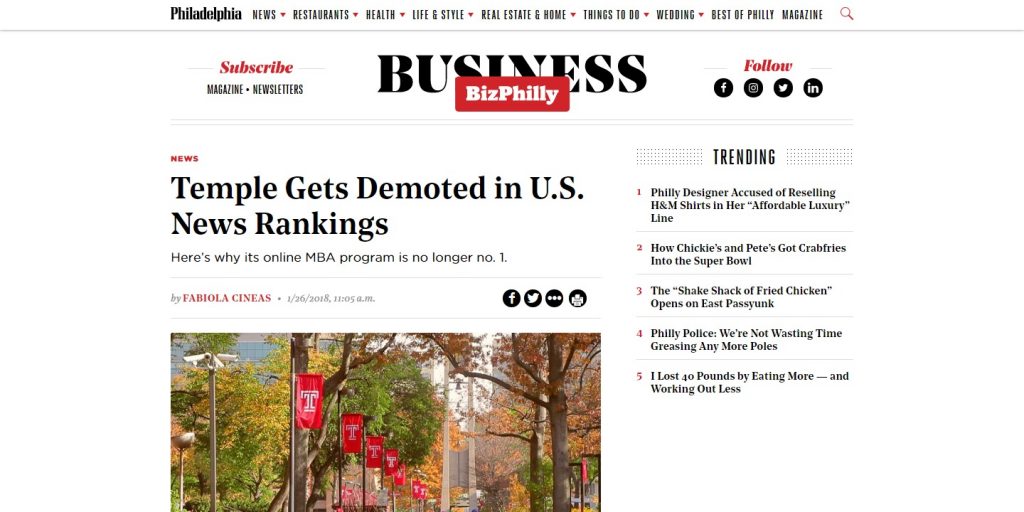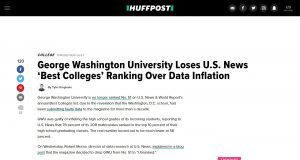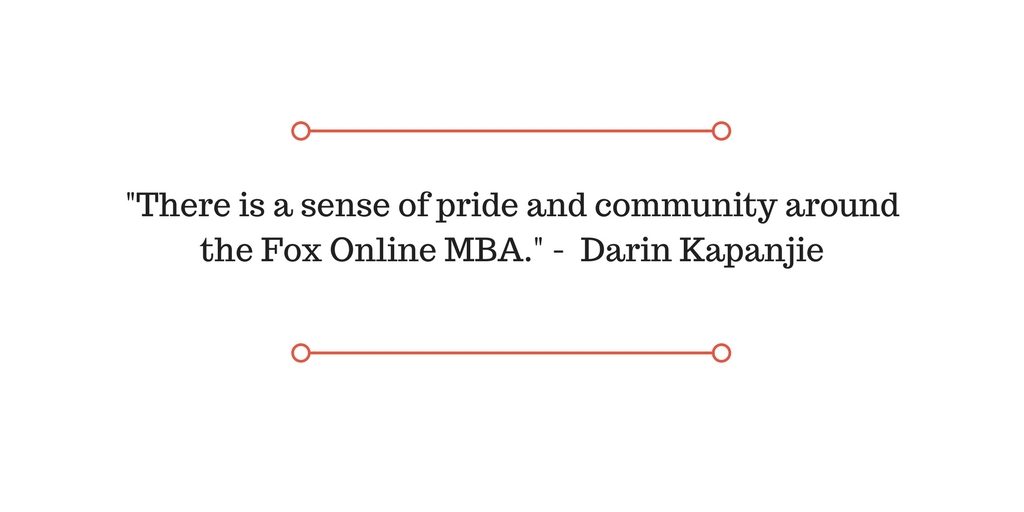Lehigh Online MBA Ranked Among the Best in the U.S.

Sponsored Content
Lehigh’s College of Business and Economics was ranked on Poets&Quants’ recently debuted 2018 ranking of the best Online MBA programs. Inside the top 10, Lehigh earns the No. 6 spot among the best business schools in the U.S.
For Poets&Quants’ first ranking of online MBA programs, it based its rankings on three core dimensions: the quality of the incoming student, an assessment by graduates of the MBA experience, both the academic and the extracurricular activities, and the career outcomes of the programs’ graduates.
The data was gathered from both school and alumni surveys that included questions on statistics and a wide range of topics regarding whether the program met alumni expectations and if alumni would recommend the program.
The nationally ranked Flex MBA Program provides the flexibility to fit students’ professional and personal needs in an academically rigorous environment and an unparalleled peer group. Students can attend any given class in person or live online. It’s the ultimate hybrid learning environment.
To learn more about the Lehigh University College of Business and Economics Flex MBA program, visit https://cbe.lehigh.edu/academics/graduate/flex-mba.
Real Humans of the Syracuse Whitman Class of 2019

On the eve of its 100th anniversary, the student body of the Whitman School of Management at Syracuse University has become more diverse than ever before. Not only do most of the students from the Whitman Class of 2019 come from outside the United States, but the majority also earned undergraduate degrees from various non-traditional backgrounds, expanding what it means to be a Syracuse MBA.

Among the Class of 2019, just under half (46 percent) of students in the program identified as female; well over the national average, according to GMAC data. Along with the 61 percent of students arriving from outside the United States, the Class of 2019 shares the unique distinction of being one of the youngest in the country, with an average age of just 25. In an academic field usually dominated by older professionals with rich, traditional backgrounds, Whitman has managed to disrupt many of the perceptions that come with an MBA.
The average GMAT score has been steadily rising over the past several years as well, jumping from 623 last year to 643 for the Class of 2019. But alongside rising test score averages, the prior work experience of the class has fallen, dropping from an average of 38 months to 28 months in just one year.
The expansive talent pool at Whitman, however, isn’t solely limited to the traditional full-time program. The ever-advancing online MBA, known simply as MBA@Syracuse, allows students to study many of the more traditional MBA specialties, including: accounting, business analytics, entrepreneurship, and finance, as well as supply chain management and marketing management. Not only that, Whitman states emphatically that there is no distinct difference in the curriculum of the online MBA and the full-time program. Rather, the only key difference is flexibility. Students in the online program can take classes from anywhere, with residencies offered in multiple cities outside of Syracuse.
To get a greater understanding of what it means to be a Syracuse MBA student, we spoke with several current students, including an Azerbaijan-born startup founder, an Indian-born analytical software expert, and an American dual JD/MBA prospect who is making a huge transition away from a career in Antarctica. Read on to see what’s in store for these students at Whitman and what life after an MBA may look like.
Caught: Why Business Schools Might Lie to Improve Rankings

School rankings from sites like Forbes or U.S. News & World Report are often a crucial factor for students before they decide where they should pursue a degree. Using a combination of rankings, standardized test scores, job placement after graduation, and tuition costs, among other crucial factors, a school ranking a quick and succinct look at the relative merits and weaknesses of MBA programs throughout the country—and the world.
There is a lot riding on these rankings: not only do perspective MBAs often make decisions about where to pursue their degree based on these reviews, but graduates can use these rankings to demonstrate the quality of their degree to future employers. With such high stakes, organizations like U.S. News that compile these rankings rely on the accurate reporting of data from each business school.
So, what happens if the information is inaccurate, or worse? Data like student satisfaction and post-graduate salary—which can be so crucial in informing a prospective MBAs choice of school or program—is reported directly from the business schools, which often presents a conflict of interest potential. With so much at stake, would a school ever lie to increase their spot in the ranking?
Unfortunately, it seems the answer is yes. Just last week, the Online MBA program at Temple University’s Fox School of Business—a program that was consistently ranked in the top spot in U.S. News’ Online MBA ranking—vanished from the list. According to the initial announcement, new information had revealed that just 20 percent of Fox students in the Online MBA program had actually submitted test scores, a number that had initially been reported at a perfect 100 percent. Since the formula used by U.S. News weighs test score averages more if over 75 percent of students have submitted them, this inaccurate reporting from Temple Fox would have given the program an undeserved boost in the school ranking.

In the wake of Temple’s removal, questions continue to arise about the lengths schools go for good rankings/Photo via PhillyMag.
In the days since the initial announcement of Temple’s removal from the ranking, even more questions came out regarding the accuracy of Fox’s data. Further investigation found that Temple had reported 100 percent of students taking standardized admissions test for every year since 2014—a suspicious jump from the 25 and 33 percent that had been reported in the years prior. Since the test scores data submitted turned out to be inaccurate, it seems wholly possible that the data had also been misreported for the three years prior; the same years that Temple Fox held the top ranking for Online MBA programs.
This isn’t the first time it’s been discovered that business schools and even undergraduate programs have falsified or reported inaccurate data to boost its rankings. In 2013, Forbes was forced to remove four schools from its ranking of “America’s Best Colleges” due to inaccurate reporting: doctored SAT results from Bucknell University, false acceptance and graduation rates from Iona College, among others. In 2012, George Washington University lost its ranking on U.S. News’ “Best Colleges” list when it was discovered they were inflating the high school grades of their incoming students.

GWU was one of several schools in the past few years to submit false data for a rankings boost/via Huffington Post.
The problem may be even more far-reaching than some may suspect. In 2013, a survey of 576 college admissions officers found that 91 percent believed other colleges to be guilty of falsely reporting their admissions data. Even the school ranking creators themselves are shocked by this trend. In 2013, U.S. News editor Brian Kelly commented, “The integrity of data is important to everybody … I find it incredible to contemplate that institutions based on ethical behavior would be doing this.”
In 2005, the Association to Advance Collegiate School of Business (AACSB) took a deep look into this trend to examine why the issue of falsifying business school data might be so widespread. “Because rankings of full-time MBA programs are commonly presented under the label of ‘best b-schools,’ the public has developed a narrow definition about the breadth and value of business education,” the report states. Since most media rankings don’t consider factors like faculty research or doctoral education, MBA programs have become more likely to invest in more visible aspects of the program, such as facilities and marketing campaigns, which don’t actually deal with the quality of the degree. As a result, even high-quality programs may earn a lower media rank than they deserve based on the factors considered, adding pressure to do what it takes to earn a school ranking that matches what they perceive as the quality of the degree.
“Plenty of people apply to a school because it has reached the summit of a ‘best-of’ ranking, just as many people will see a movie or buy a book after it wins an award. That’s human nature,” Columbia Business School dean Glenn Hubbard told Fortune. “We want to experience the best.”
Whether or not placement in a school ranking truly represents the quality of a degree, it’s easy to see why the pressure is on for many admissions departments. A better school ranking can increase the number of applicants, providing for a more competitive, and diverse applicant pool, which creates a better quality admitted class. The cycle continues: success of these graduates can improve the possibility of future funding, providing more resources for the program and encouraging even more applicants to apply down the line.
“Rankings have become omnipresent in higher education, and they have enhanced the competition among institutions,” said Terry W. Hartle, senior vice president at the American Council on Education, in 2013. “And in any highly competitive environment, there is always a temptation to cut corners.”
For now, the Fox School of Business has been removed from the U.S. News Online MBA ranking. Concerns about false data continue to be evaluated, as organizations like AACSB continue to seek solutions and make recommendations for best practices when it comes to the collection and reporting of admissions data. In 2017, the AACSB publication “On Academic Rankings, Unacceptable Methods, and the Social Obligations of Business Schools,” suggested that schools and organizing bodies work together to find a method of data collection that includes “transparency, interpretability, and the empowerment of individual decision makers by whatever criteria truly suits their individual needs.”
For prospective students, its important to acknowledge this troubling but widespread trend as they make important decisions about where to earn a degree. While school ranking remains an easy way to compare programs against each other, students should consider not just the accuracy of the data but also the kind of factors reported in media rankings. While it seems possible that the number one program in a media ranking may not truly deserve that position, the real top program- the best for each individual’s needs and career goals—will always deserve first place.
How Temple University’s Fox School Remains King of the Online MBA (UPDATED)

UPDATE: Since the release of this article, U.S. News & World Report has removed the Fox School of Business from its 2018 Best Online MBA ranking for reporting falsified application information. This article does not reflect the changes in the ranking.
The Temple University Fox School of Business Online MBA program has been named the best in the United States for the fourth consecutive year by U.S. News & World Report. We recently spoke with Darin Kapanjie—Fox Temple associate professor, Academic Director of the Online BBA, Online MBA, and part-time MBA programs, and the Managing Director of Online and Digital Learning—about the school’s miraculous online supremacy and what the future holds.
Staying at the top of any MBA ranking, not just in one region, but across the entire U.S. for four years, is unprecedented. For Kapanjie, it’s been long enough for him and the rest of the Temple Fox team to start guessing when, if ever, another school will take over.
“We keep waiting for someone else to claim the top spot,” he says. “To be honest, the end of the day we built a program that we believe to be the best in land. We don’t tailor our program to the rankings, it just so happens that the program we built does well in the rankings.”
Unlike many new online MBA programs, which are designed for applicants with less experience, the Fox School of Business Online MBA caters to a more “mature” demographic, he notes.
“The design of our program speaks to a more mature business professional. [Students] average over 12 years of work experience, which is unusual for an online program. That mature population helps with some of the ranking criteria. We’ve also invested heavily in the product we are delivering, we have a team of instructional designers, instructional technologist, technical support specialists, and web developers. We have built our program, marketing, recruiting, and instructional design teams from within, nothing is outsourced. As a result, this team is dedicated to the success of this program. There is a sense of pride and community around the Fox Online MBA.

Despite the Online MBA’s miraculous rise to prominent among business schools, Kapanjie acknowledges that Fox and other schools like it are still competing against traditional MBA programs. However, there are plenty of reasons to prefer the digital format.

Fox School of Business Academic Director Darin Kapanjie
“This is more of a personal preference or pressure from a busy travel schedule from work, than a more attractive alternative,” he explains. “We at Fox understand the market is changing and that online/hybrid learning is the now and will continue into the future. Personally, I believe that in a few years the hybrid and online MBA’s will dominate the market. Online education is being accepted more and more, it’s no longer viewed as a cheaper and easier solution. It’s schools like us and Carnegie Melon, UNC, Indiana, University of Florida, etc. that are dedicated to delivering quality online opportunities that are helping change that perception. Personally, I believe our online program stacks up well against most of the top ranked traditional MBA’s.”
Even with a rich tradition of forward-thinking business school programs located in and around Philadelphia, Fox manages to stand out—particularly among schools offering an online degree.
“We have made a significant investment in online education here at Fox,” he says. “Our entire operation is run in-house and is built for the future. We put a great deal of effort around the entire student experience, from inquiry to alumni. I can’t speak for other schools in the region, I can only say that we believe there is a vast market in need of a high-quality online MBA program and we are listening to that market.”
But to keep Fox’s top spot, Kapanjie acknowledges that the program cannot remain stagnant.
We are building more and more concentrations (mini-major within our MBA) and integrating several dual degree opportunities to widen our net,” he explains. “I personally believe that the dual degrees, MBA/MS, will become more popular in the next few years.”
For more information on the Online MBA at the Temple University Fox School of Business and other MBA offerings, check out our profile on the business school and head over to the official Fox Temple site.
Comparing The U.S. News Full-Time and Online MBA Rankings

When it comes to business school rankings, U.S. News & World Report issues one of the most comprehensive annual lists. The annual rankings includes separate lists for the “Best Business Schools” and the “Best Online MBA Programs,” but deciding which format is right for you can still be tricky. Continue reading…
Temple, Carnegie Mellon Top U.S. News 2018 Online MBA Rankings

The annual U.S. News & World Report 2018 Online MBA rankings are officially in, with the Fox School of Business at Temple University, once again, taking the top honors.
